LOW VISION SERVICES
IN LANCASTER
Our Eye Doctors at will meet with you to evaluate your vision and lifestyle needs thoroughly. After a comprehensive eye exam, we’ll work together with you in our Lancaster County clinic, to figure out the best strategies and low vision equipment for your personal requirements.
We’ll introduce you to a whole range of practical low vision devices that will help restore your ability to see and do the things you love.

Experiencing any of these Low Vision symptoms?
Sensitivity to light | Loss of peripheral vision | Unusual spots or floaters | Blurred vision
Night blindness or a need for more light than before | Difficulty reading
Rehab after vision loss | Macular degeneration | Glaucoma
We can help! Read below to see how.
What is Low Vision?
Low vision is where you have done traditional corrective vision methods such as glasses, contacts, medication or Lasik and are still unable to perform the daily tasks that you desire. You have difficulty with driving, watching TV, writing, recognizing faces or reading the paper. Through our various techniques, medications, aids and adjustments to daily life, you can return to many of your daily activities.
BOOK YOUR LOW VISION EXAM ONLINE
OR CALL OUR LANCASTER OFFICE TODAY
Low vision is considered a significant vision impairment that usually results from serious eye disease or an injury. The vision loss, which is characterized by either reduced visual acuity (to 20/70 or worse) or reduced field of view, can’t be fully corrected with glasses, contact lenses, medication or surgery.
Low vision can affect both children and adults but is more common in the elderly, who are at greater risk of eye diseases such as glaucoma, macular degeneration, and cataracts, which are some of the most common causes of the condition.
Patients with low vision may have complete central or peripheral vision loss, blurry vision, poor low-light vision, loss of light sensitivity and/or loss of contrast, making daily activities such as writing, watching TV, driving or reading difficult or impossible. Since the vision loss can’t be corrected, low vision requires significant adjustments to daily life and the help of techniques and specialized low vision aids to help maximize the remaining vision to increase independence and quality of life.
Living With Low Vision
Low Vision Aids in Lancaster
Retinitis Pigmentosa (RP)
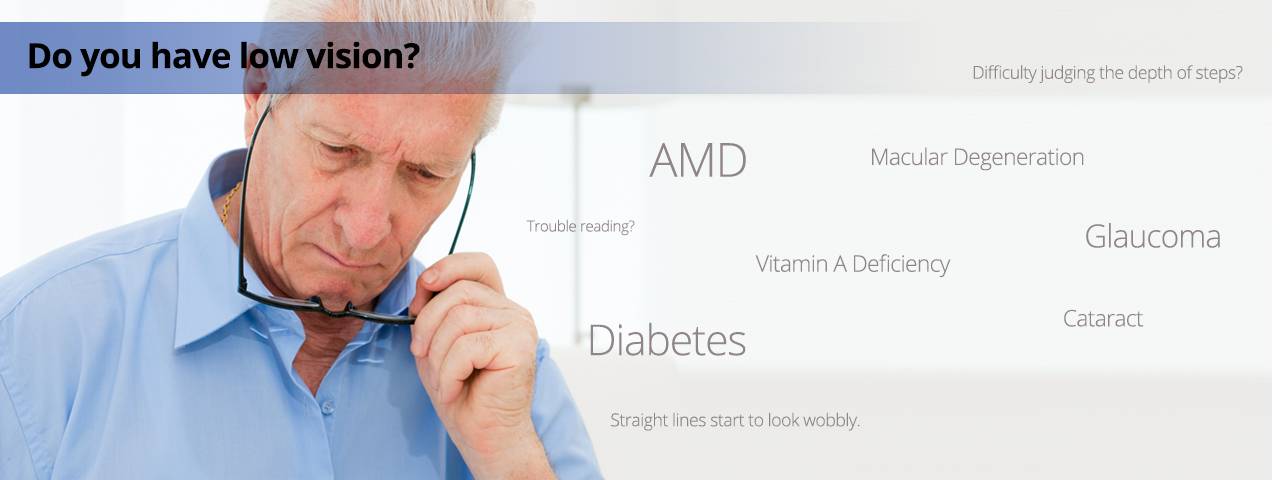
Being diagnosed with low vision can be traumatic, and living with low vision can be both frustrating and isolating. Reduced eyesight can make many typical daily tasks difficult, such as reading, writing, using a computer, driving, and even crossing the street safely. You may feel depressed by having to constantly depend upon others. If you relate to these emotions, we urge you to seek low vision rehabilitation and support. Our Lancaster eye care specialists can teach you how to use various low vision aids and strategies. We will help you regain independence and enjoy life again.
Visit caring.com for more resources.
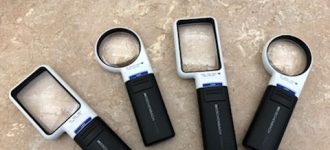
Not the same as blindness, low vision means that you have reduced sight. At Yealy Eye Care, we offer an extensive range of low vision aids to help maximize your remaining vision. These technologies and devices include magnifiers, computer programs, telescopic lenses, specialized lighting, and a variety of advanced and customized tools. Our Lancaster low vision specialists will evaluate your vision and your lifestyle requirements to match you with the most helpful, effective low vision aids.
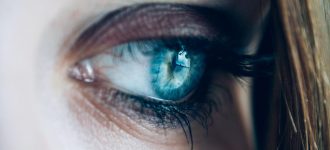
Retinitis Pigmentosa is a rare, genetic disease that involves damage to the photoreceptors in the retina. These retinal cells line the back of the eye and are highly sensitive to light. When they don’t function properly, the person with RP suffers a loss of peripheral vision, loss of central vision, and trouble seeing at night – all of which lead to low vision. Our Lancaster optometrists are knowledgeable and experienced in treating retinitis pigmentosa to make the most of any remaining vision. We will fit you with the most suitable low vision aids, working with you patiently to promote independence and help you do the things you love.
Bioptics/Telescopic Lenses
CentraSight/Implantable Miniature Telescope
Driving With Low Vision
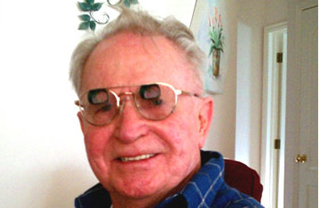 Specialized binocular instruments can be mounted on your eyeglasses to enhance vision of fine details, such as the words on a street sign and facial expressions. These types of low vision devices bring faraway objects into close focus. An array of options is available, including bioptic telescopes and revolutionary E-Scoop glasses; we fit many low vision patients with these aids. To try bioptics and telescopic lenses for yourself, contact us to schedule a low vision consultation in our Lancaster eye care center.
Specialized binocular instruments can be mounted on your eyeglasses to enhance vision of fine details, such as the words on a street sign and facial expressions. These types of low vision devices bring faraway objects into close focus. An array of options is available, including bioptic telescopes and revolutionary E-Scoop glasses; we fit many low vision patients with these aids. To try bioptics and telescopic lenses for yourself, contact us to schedule a low vision consultation in our Lancaster eye care center.
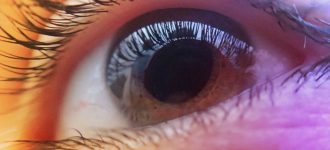
CentraSight is a tiny device that can be implanted into your eye to assist with vision loss caused by end-stage age-related macular degeneration (AMD). The CentraSight telescope projects images onto the healthy part of your eye that was not damaged by AMD. Your other eye sees peripheral vision, so with both eyes teaming together – you have a wider field of view. Candidates for this implantable telescope must be a certain age and cannot have had cataract surgery. Our Lancaster low vision specialists will assess your situation and condition to determine if you are a good candidate for this cutting-edge device. Contact us to find out more about CentraSight.
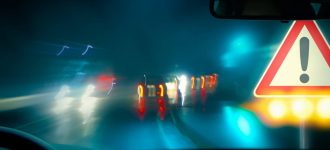
There are many risks involved in driving with low vision. For example, you may not be able to see traffic lights or road signs clearly. However, losing your ability to drive can be devastating. You need to depend upon others to run your errands and get you to where you need to go. Fortunately, a range of aids is available to help you drive safely. Our Lancaster optometrists can match you with bioptics and telescopic glasses to magnify everything you need to see while on the road. In New York, drivers need 20/100 vision with glasses or contact lenses to stay behind the wheel. With low vision aids like telescopic lenses, we can help sharpen your sight to 20/40 vision!
Age-Related Macular Degeneration (AMD)
Diabetic Retinopathy
Juvenile Macular Degeneration
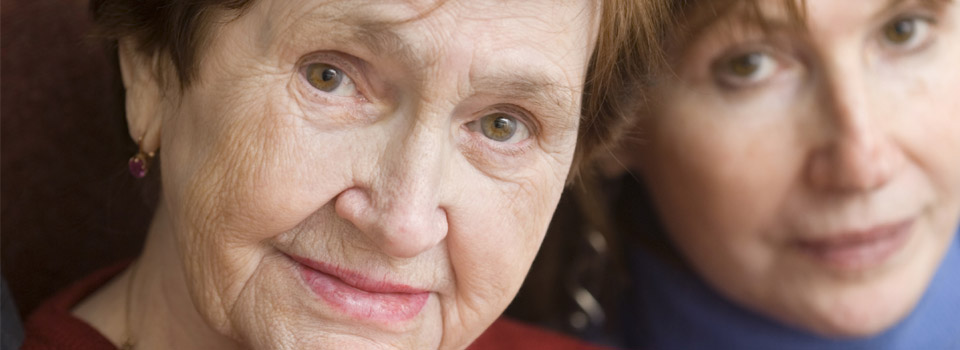
Age-related macular degeneration damages the macula, which is the part of your eye responsible for sharp central vision. With this common and painless eye disease, objects straight in front of you and fine details become blurred, and you may have trouble seeing in dim light. In some people, AMD progresses very gradually, and you may not notice any problems until the disease has advanced to a late stage. A comprehensive eye exam is the only reliable way to detect AMD, contact our Lancaster eye doctor to schedule regular eye exams – especially after age 50. If you have age-related macular degeneration and have been diagnosed with low vision, we can help you use your remaining vision to its full potential, so you maintain a high quality of life.

Diabetic retinopathy generally presents no symptoms at the beginning, but over time you may notice symptoms such as dark spots, blurry vision, many floaters, weak color vision, and fluctuating visual acuity. These complications occur as a result of extra sugar circulating through the bloodstream, which leads to a blockage of the small blood vessels in your eyes. The blocked vessels interfere with blood flow to your retina, and your eye attempts to remedy the situation by growing new, unhealthy vessels – which are weak and leak fluid. Treatment is available for diabetic retinopathy, particularly when diagnosed early. That is why we urge all patients with diabetes in Lancaster to book regular eye exams.

Juvenile macular degeneration affects central vision. Presently, this inherited eye disease has no cure. However, our Lancaster low vision specialist can offer a variety of vision aids and treatments to help each patient maintain independence and an active lifestyle.
Glaucoma
Cataracts
Stroke Victims

Glaucoma is the top cause of preventable vision loss and blindness among adults in North America. This eye disease is characterized by high pressure of the intraocular fluid in your eyes. Elevated pressure levels eventually injure the optic nerve, which leads to vision loss. To prevent the damaging effects of the most common types of glaucoma – open-angle glaucoma and narrow-angle glaucoma – it is essential to visit our Lancaster optometrist for routine comprehensive eye exams with glaucoma testing. The earlier that glaucoma is diagnosed, the more effective the treatment.

Cataracts are a very common eye disease, affecting more than half of all people over age 80. Symptoms include blurred and hazy vision. In the beginning, many people do not require treatment. Once cataracts progress, our Lancaster optometrist can assist you to live with the vision loss by fitting specialized lenses or low vision aids. If your eyesight continues to deteriorate, cataract surgery is ultimately the best option for most people. We offer full co-management services for cataract surgery in Lancaster.

In order to see clearly, your functional visual system must work properly. A healthy visual system depends upon brain and eye coordination; the eyes send visual cues through the nerves to the brain, where they are processed and sent back to the eyes. If you have low vision due to a brain damage from a stroke and, our Lancaster low vision specialists can help.
BOOK YOUR LOW VISION EXAM ONLINE
OR CALL OUR LANCASTER OFFICE TODAY
With significant vision loss, it can become challenging to complete common daily tasks including reading, writing, cooking, and housework, watching television, driving or even recognizing people.
When low vision is diagnosed it can come as a shock. Initially, it is an adjustment to learn how to function with impaired vision but the good news is there are numerous resources and products available to assist. Because low vision often results in one’s inability to work, function independently, drive and resume their normal life, many patients feel isolated and depressed.
If you or a loved one suffers from low vision, here are some ways to make life with low vision easier
- Adjust Lighting. Ensure that your home is well lit. This may require some trial and error with different lights and voltages to determine what works best for you.
- Use a magnifier. There is a vast selection of magnifiers available, ranging from hand-held to stand magnifiers. Binoculars and spectacle mounted magnifiers are also an option.
- Your optometrist or low vision specialist can recommend specialized lens tints for certain conditions such as retinitis pigmentosa or cataracts, which enhance vision or reduce light sensitivity.
- Use large print books for reading. Alternatively, try digital recordings or mp3s.
- Make use of high contrast for writing. Try writing in large letters with a broad black pen on a white piece of paper or board.
- Add a high-contrast stripe on steps (bright color on a dark staircase, or black stripe on light stairs) can prevent falls in people with low vision, and may enable those who suffer to remain independent in their home.
- Find out about what technology is available to help make your life simpler.
If you or a loved one has low vision, don’t despair.
Consult with our eye doctor in Lancaster about the best course of action to take to simplify life with low vision.
